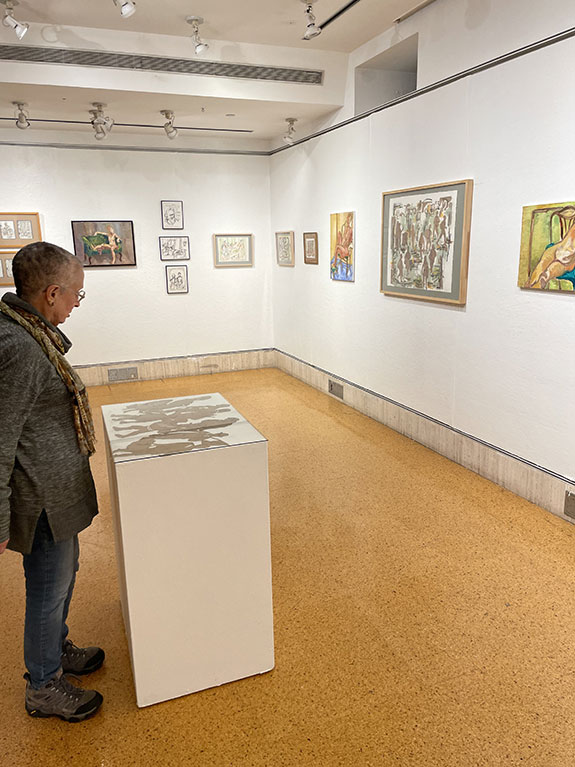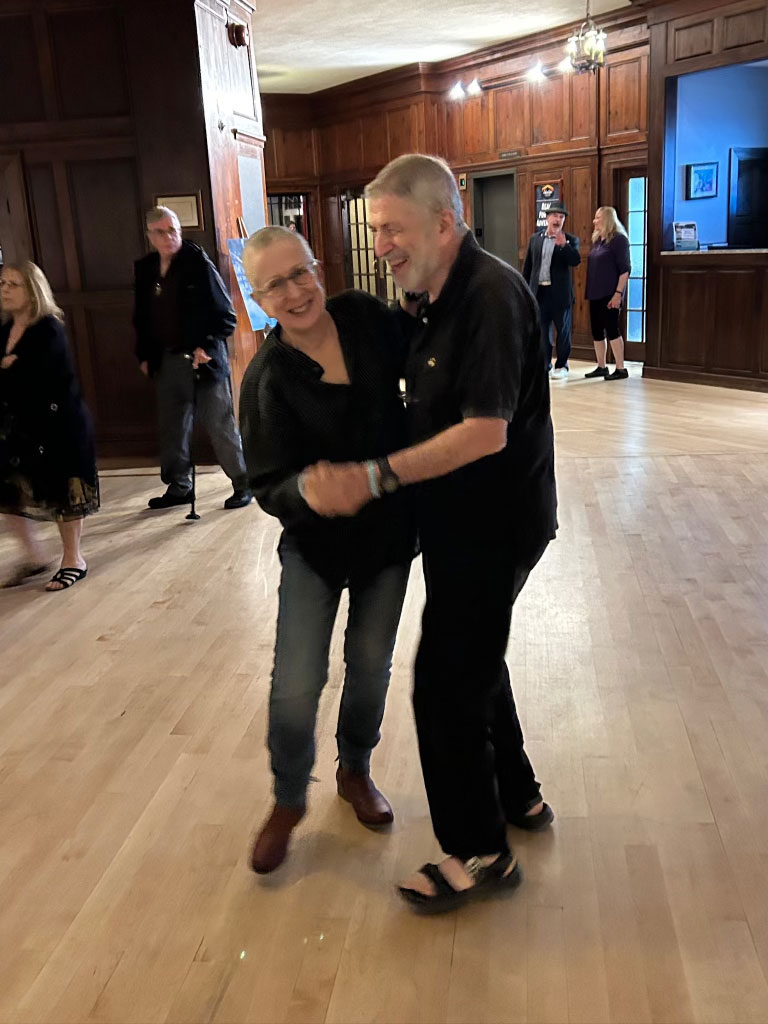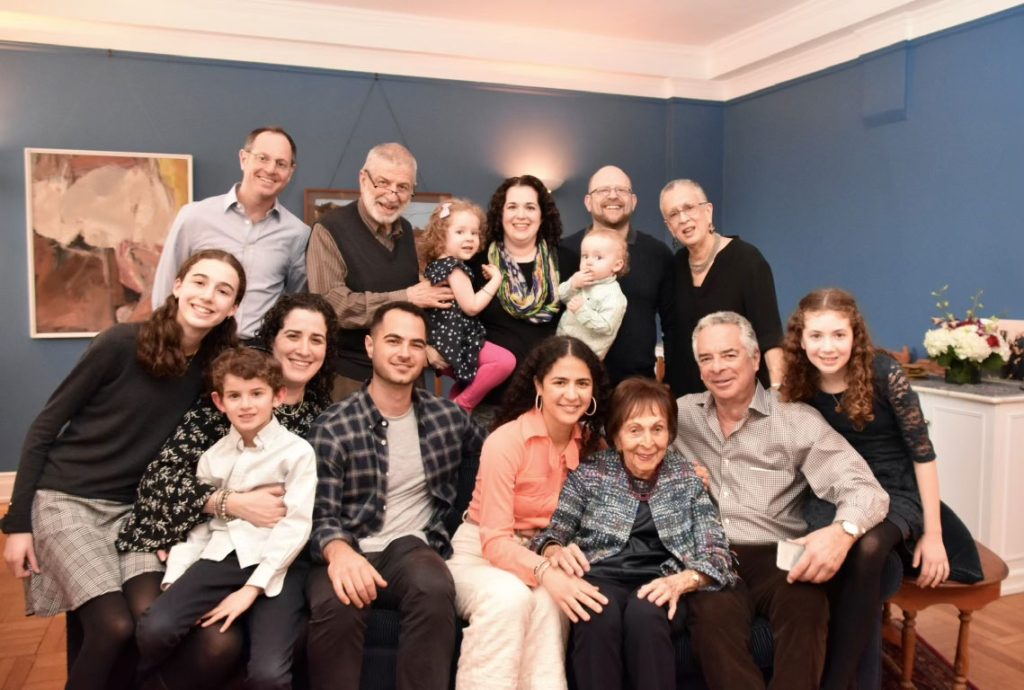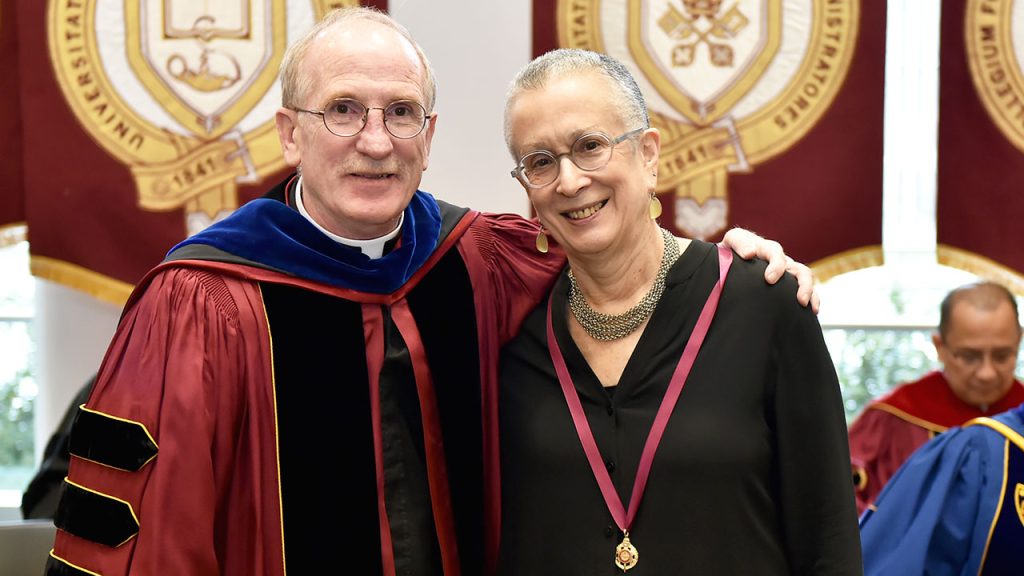Anne Golomb Hoffman, Ph.D., a longtime pillar of Fordham’s English and Jewish Studies departments whose research blended literature, psychoanalysis, history, and art, died suddenly of a heart attack at Columbia Memorial Hospital in Hudson, New York, on Nov. 4. She was 78 years old.
Hoffman was widely respected at Fordham for her interdisciplinary expertise and collaborative spirit.
Elizabeth Stone, Ph.D., a professor of English, said that despite their different fields of study, they grew to be fast friends.
“I always knew we spoke the same language. Decade after decade, our conversations about one another’s work were immensely gratifying,” she said.
Magda Teter, Ph.D., the Shvidler Chair in Judaic Studies at Fordham, called Hoffman “a beloved member of Fordham’s Jewish Studies community” and said her work was marked by “great erudition and disciplinary depth.”
“In her 1991 work on the Hebrew writer and Nobel Prize laureate S.Y. Agnon, she deployed a wide range of theoretical tools, ranging from psychoanalysis to feminist theory,” Teter said.
“She placed Agnon in conversation with other writers, such as James Joyce, Kafka, and Thomas Mann. … She was able to handle, with equal care and knowledge, traditional Jewish text and modern philosophy.
Hoffman was born on June 19, 1946, in New York City and grew up, along with her younger brother, David, in Brooklyn. She earned a bachelor’s in English and Comparative Literature from Cornell University and a master’s and Ph.D. in English and Comparative Literature from Columbia University. She was a special member of Columbia’s Association for Psychoanalytic Medicine.

She joined Fordham in 1979 and taught courses in Israeli literature and film as part of Fordham’s Middle East Studies program. In 1992, she created the annual Nostra Aetate Dialogue series, which brought together Jewish and Christian scholars to address questions pertinent to Jewish-Catholic reconciliation. In 2002, she also helped found Fordham’s Jewish Texts Reading Group, which still meets today.
Hoffman was an accomplished painter. In 2015, she opened up about her creative process in a lecture at the Walsh Library. Last November, her art was displayed at Fordham’s Butler Gallery.
Hoffman was known at Fordham as a skilled instructor and generous mentor. Fordham professor of biology Jason Morris, Ph.D., said she taught him how to be a better teacher.
“I learned so much from teaching with Anne. She appreciated nuance: she had a deep mistrust of facile answers and sharply drawn lines,” he wrote in an email.
“Her integrity and her empathy (and despite what she said, her expertise) came across in everything she said and did.”
In 2003, she was honored with Fordham’s Outstanding Teaching in the Humanities Award, and in 2019, she was recognized for 40 years of service at Fordham. She retired in 2023 and was named professor emerita.
Nikolas Oktaba, a 2015 graduate, took a class with Hoffman, and like many students, he kept in touch with her after graduation. He called her a “fount of tranquil wisdom.”

“Not only did she put her students first, but she did so in a way that allowed them to see the perseverance, resilience, and strength that they already held within them,” he said.
At the time of her death, in addition to her painting, she was teaching writing skills at the Fortune Society, teaching Freud at the New York Psychoanalytic Institute, and conducting friendship-focused writing groups at the Asian University for Women (AUW) in Bangladesh via Zoom.
Leon Hoffman, M.D., Anne’s husband of 57 years, said that he would forever hold onto a memory of the two of them walking together when she was an undergraduate and he was attending medical school.
“We had one of those adolescent discussions of the time: would we marry someone who was not Jewish? I responded very quickly, ‘That is an academic discussion because I am going to marry you.’ She was shocked, but the rest is history,” he said.
“We were not tied at the hip, but we were tied with our brains and our love.”
In an interview last year, Hoffman recalled what her late father-in-law said when she received her first summer grant to travel to Israel to explore Agnon’s archive.
“He observed that it truly is the ‘goldeneh medineh’ (a Yiddish term referring to the U.S. as the golden land) when a Catholic university gives a Jewish girl money to go to Israel to work on Agnon,” she said.
“Even more than the material support, his remark captures something of the openness and generosity that have been my experience of this university, my academic home for over 40 years.”

Hoffman is survived by her husband, Leon Hoffman, M.D.; her children, Miriam Hoffman, M.D. (Steven Kleiner, M.D.) and Liora Hoffman, Ph.D. (Rob Yalen); her brother, David Golomb; her niece, Danielle Golomb, M.D.; her nephew, Jesse Golomb; and her grandchildren Shoshana, Elisheva, and Hillel Hoffman Kleiner and Greta and Max Yalen.
A memorial service open to the University community will be announced at a later date.

